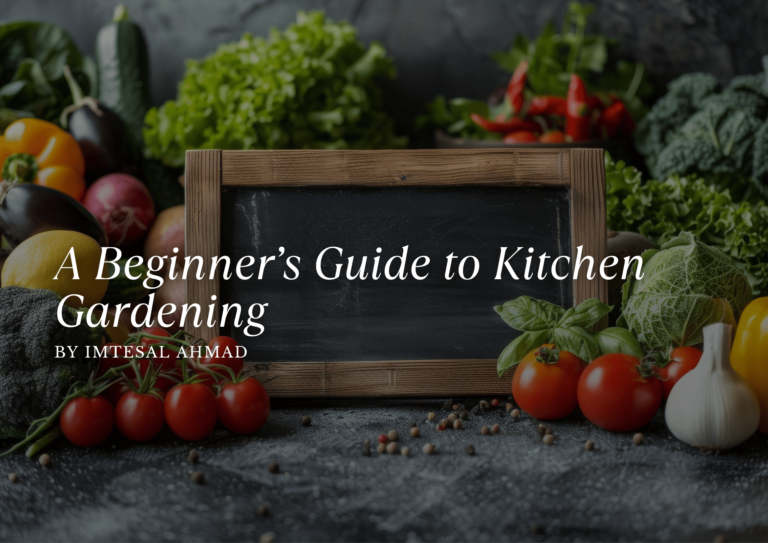By Imtesal Ahmad

Adding years to your life and life to your years, kitchen gardening is the practice of growing your own fruits and vegetables at home. It offers numerous benefits, including nutritious produce, reduced dietary expenses, and a sustainable way to minimize food waste. While gardening can be physically demanding, it also serves as a calming and rewarding activity that enhances your connection with nature. The love for gardening is a seed once sown that never dies.
Benefits of Kitchen Gardening:
- Healthier Produce: Growing your own fruits and vegetables ensures they are free from harmful chemicals.
- Physical Activity: Gardening keeps you active, serving as a form of exercise.
- Stress Relief: The act of gardening can be meditative and reduce stress levels.
- Fresh Air and Sunlight: Working outdoors helps you soak up vitamin D and breathe cleaner air.
- Cost Saving: Reducing the need to buy produce can lower your grocery bills.
- Environmental Impact: A small garden contributes to environmental sustainability.
Key Elements of a Kitchen Garden:
- Size: Determine the scale of your garden based on available space, from a single pot to a full yard.
- Location: Choose a spot that receives at least 6-8 hours of daily sunlight with easy access to water. Ensure the area has good drainage to prevent waterlogging. A location near your home makes it easier to maintain the garden and access fresh produce quickly.
- Soil Preparation: Good soil is essential for healthy plants. Test the soil to determine its pH and nutrient levels. Add compost or organic matter to improve soil structure and fertility. Well-prepared soil supports robust plant growth and higher yields.
- Select Your Plants: Choose plants that are suitable for your climate and soil conditions. Beginners can start with easy-to-grow vegetables like tomatoes, lettuce, radishes, and herbs.
- Garden Layout: Organize your garden to make the best use of space. Raised beds, containers, and vertical gardening techniques can maximize small areas. Group plants with similar water and sunlight needs together.
- Maintenance: Regular care, including proper watering, weeding, and pest control, is essential. Water your plants consistently, especially during dry periods. Mulch around plants to retain moisture and suppress weeds. Use natural remedies for pests and diseases when possible.
- Crop Rotation: Practice crop rotation to prevent soil depletion and reduce the risk of pests and disease. Rotate plant families each season to maintain soil health and fertility.
By following these guidelines, you can create a beautiful and productive kitchen garden. Kitchen gardening is more than just a way to grow food; it is a journey towards a healthier and more sustainable lifestyle. The process of nurturing plants and watching them grow provides a sense of accomplishment. Whether you have a spacious backyard or a small balcony, kitchen gardening is adaptable to any living situation. Start small, learn as you go, and gradually expand your garden as you gain confidence and experience. In doing so, you’ll enjoy the many benefits of fresh, home-grown produce while contributing to a greener planet.



